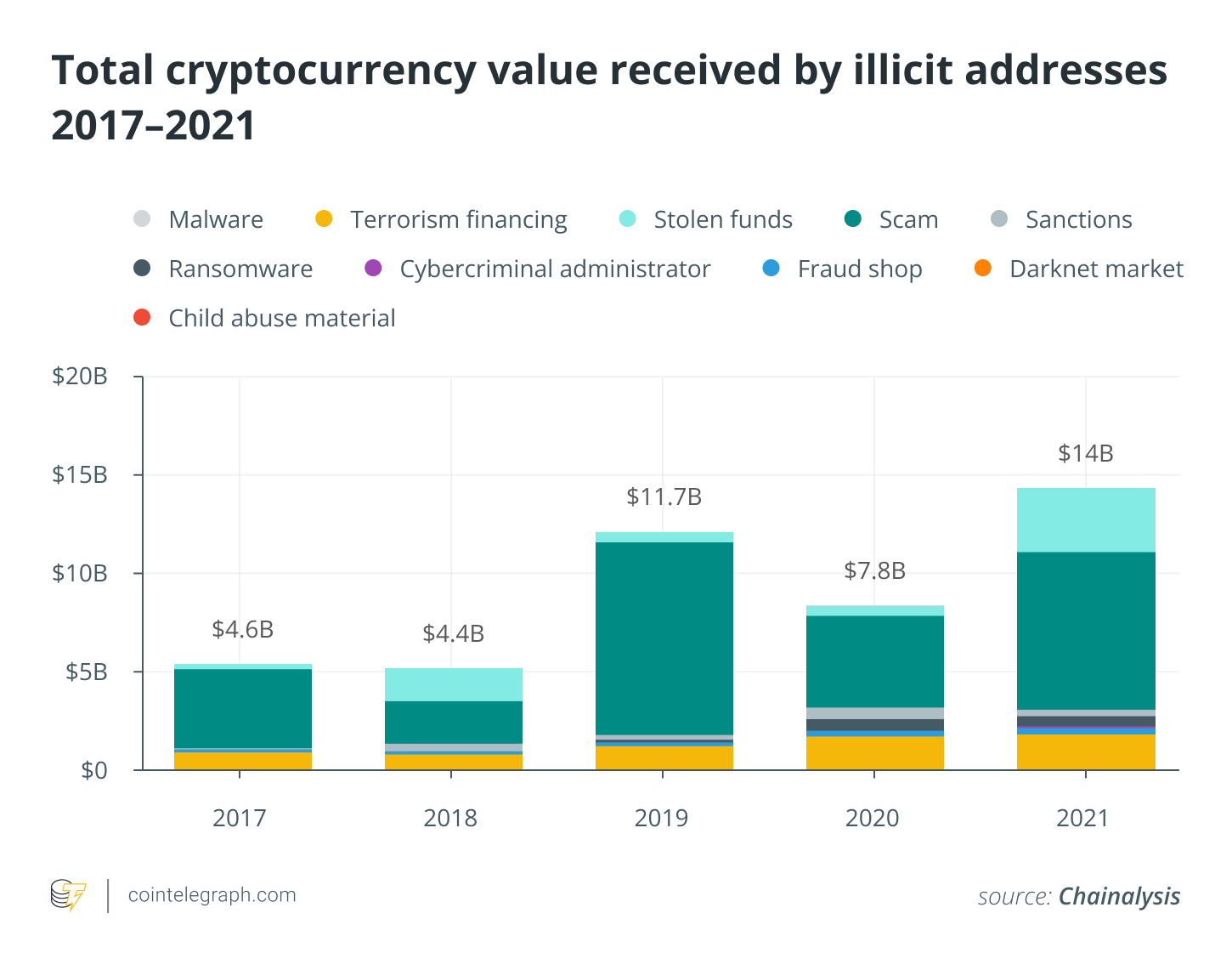The common narrative around the prevailing threats to mainstream adoption of cryptocurrencies is that regulators will put the kibosh on their legality, it has to get much easier for “ordinary” people to use, and the magnitude of its volatility has to be tempered.
All of these are true. But there’s something perhaps just as consequential: scams, hacks, fraudulent exchanges, dumps and the like. Why? Every attack leaves a scar. And the scars are mounting fast.
According to a study by Chainalysis, scammers got away with $14 billion worth of crypto in 2021, which represents hundreds of thousands — maybe millions — of victims in a community where every negative experience has a voice in an echo chamber.
Today, very few are immune to scams and attacks
The urgency for reigning in the dark web is rooted in behavioral economics: loss aversion. For most in the mainstream, once they lose a “significant” amount of money to a scam or hack, there’s a good chance they’ll be done with the whole asset class — if not forever, for a very long time. The specter of loss drowns the potential for gain.

And, unfortunately, the likelihood today of virtually every crypto trader and/or user being victimized is quite high. (Even Vitalik Buterin, co-founder of Ethereum, was the victim of a scam, which is described in the book The Cryptopians.) The bad guys are simply that good.
Example one. You read on your Reddit that your favorite token is doing an airdrop. You’ve heard about others receiving these “free gifts of money,” so you jump on the link and are taken to a page where you see what looks like a live trade book. “For every token you send us, up to 500, we’ll send you back two as your reward,” it says. And there’s a timer indicating just 30 minutes left in the event; you better rush to get your tokens. So you do. What you soon learn is that the Reddit channel where you learned about the “offer” wasn’t official; the airdrop was a scam; the timer…
Click Here to Read the Full Original Article at Cointelegraph.com News…
























